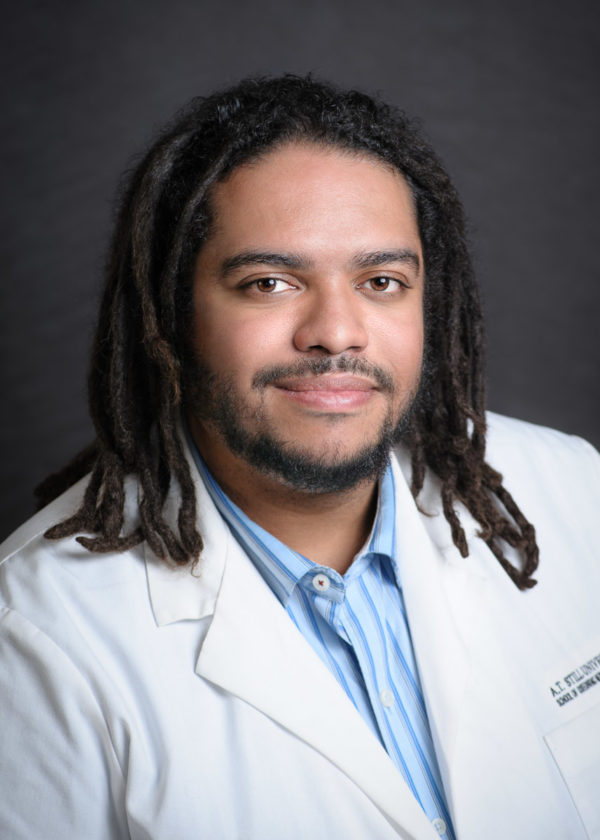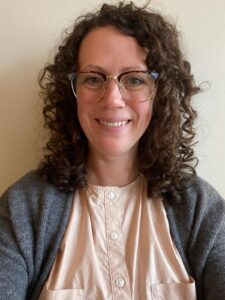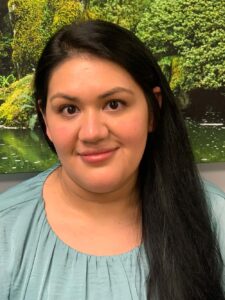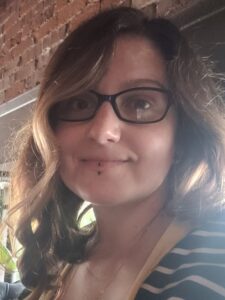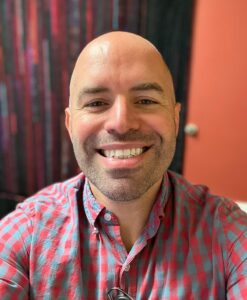Meet the NorthStar Team
Dr. Andrew Williams
Dr. Andrew Williams is a licensed and board Certified General Psychiatrist. After graduating residency at Creighton University School of Medicine at Maricopa Medical Center he returned home to Portland,OR.
Before entering medical school Dr. Williams worked as an Art Therapist, helping people with serious mental illnesses, trauma survivors, cancer patients, and at risk youth. The use of expressive therapies in the healing process led Dr. Williams to develop a caring, holistic approach to psychiatry.
At Northstar Psychiatry Dr. WIlliams continues his practice of person-centered care using both traditional and cutting edge technologies to better the lives of his patients. When he isn’t helping patients at Northstar, Dr. WIlliams works in an emergency setting and teaches the next generation of psychiatrists in one of the region’s leading academic hospitals.
Holly Friesz
Clinical Supervisor,
Licensed Clinical Social Worker
Portland Office and Telehealth Visits
Education
B.A., 2008, Dickinson State University
M.S.W., 2015, Portland State University
I have almost 10 years of experience working in the behavioral health field and take a very active approach to therapy focusing on teaching skills and working with you to learn the ways in which your brain may be contributing to your difficulties. Pain and suffering is part of the human experience and it doesn’t have to keep you from living the life you want to live. There are things we can learn and skills we can use to lessen the impact pain and suffering has on our lives allowing us to be more present. I utilize ACT (Acceptance and Commitment Therapy) which is an active therapeutic approach that helps decrease the power that painful thoughts, feelings and memories have over our lives. In our sessions, we will focus on uncovering how painful thoughts and feelings hook you and what you can do to unhook in order to be more present and put your energy into healing rather than dwelling on the negative. I work primarily with adults and work with people experiencing a variety of mental health struggles such as depression, anxiety, ADHD, trauma, Bipolar Disorder, and substance use challenges as well as many other issues.
Kyong Zu Park, PMHNP
Psychiatric Nurse Practitioner
Education
B.A., 2001, Korea University
B.S.N., 2012, Oregon Health & Science University
M.S.N., 2015, Oregon Health & Science University
Certifications
ANCC Board Certified Psychiatric Mental Health Nurse Practitioner
Kyong has been providing community mental health service and emergency psychiatric service in the Portland area for the past 7 years. Her specialty is providing intercultural psychiatric service including but not limited to people from different countries and people from marginalized cultures.
Sara BaDour
Qualified Mental Health Professional,
Licensed Professional Counselor
Education
B.S., 2016, University of Wisconsin-Eau Claire
M.S., 2021, Capella University
My name is Sara BaDour. I am a Qualified Mental Health Professional and LPC Applicant with a focus on trauma and crisis counseling. I practice from a person-centered approach in which I believe the client is the expert in their own life, creating a collaboration between client and clinician.
Building rapport and a therapeutic relationship is a necessary foundation for any therapy and heightens the efficacy of individualized interventions like CBT, DBT, and trauma-informed care. I also have a background in neuroscience which I integrate into my therapy to provide clients an understanding of how the brain works, relating it back to their presenting problem(s). I worked with clients experiencing a wide variety of issues from depression and anxiety to substance use, trauma, and personality disorders.
No one client is the same, which is why the therapeutic interventions are structured to the client in a collaborative fashion, empowering the client to regain strength in themselves and their lives.
Jennifer Barnes
Psychiatric Mental Health Nurse Practitioner (PMHNP-BC, IBCLC)
Jennifer Barnes is a psychiatric mental health nurse practitioner (PMHNP) committed to providing holistic, evidence-based care. She seeks to understand the background, strengths, and struggles of her patients to work together to build a treatment plan individualized to their needs. She can address a variety of concerns including anxiety disorders, depression, treatment resistant depression, bipolar, PMDD, and ADHD.
Her areas of interest and expertise include pregnancy, fertility challenges, postpartum, the transition to parenthood, and the menopausal transition. Before attending graduate school, Barnes spent the past 20 years working in women’s health and maternity care as both an RN and a board-certified lactation consultant (IBCLC). Several observations over the past many years contributed to her decision to return to graduate school: the rise in mental health disorders, the challenges in finding qualified providers, and the lack of community support. Her background in women’s health has given hera strong foundation in the way hormones interact with mental health.
Jennifer is passionate about collaborating with individuals to help them feel their best and live fulfilling lives. When not working in this role, she loves to read, take walks with her dogs, and spend time with friends and family. She grew up in the Pacific Northwest and enjoys all that the area has to offer.
Jessica Bentura-Jimenez
Psychiatric Nurse Practitioner
Education
B.S.N., 2017, Colorado Technical University
M.S.N., 2021, Frontier Nursing University
*Achieving a Doctorate of Nursing Practice degree at Frontier Nursing University
Jessica is passionate about providing mental health services to the adult population. In her practice, she strives to achieve the highest care with respect and regard for her patients and their treatment preferences. Treatments align with evidence-based guidelines combined with clinical experience, personal observation, and patient input, in order to develop a treatment plan that is patient centered. Focused treatment areas include depression, treatment resistant depression, anxiety, bipolar disorder, PTSD, schizophrenia, schizoaffective disorder, and ADHD.
Kendra Pittman
Licensed Clinical Social Worker
Education
B.A., 2012, Western Washington University
M.S.W., 2017, Portland State University
I am a Licensed Clinical Social Worker who works primarily with youth ages 12-20 and their families. My background includes over a decade of experience working with youth and families in schools in Oregon as well as in Latin America. I honor the client’s life experiences and knowledge gained through culture and upbringing. My approach to supporting youth and their families is gentle, compassionate, and genuine, yet straightforward. I have a strong foundation in working with youth of all backgrounds and identities who are experiencing depression and anxiety. Some modalities I use include Cognitive Behavioral Therapy, Family Systems Therapy, and Dialectical Behavioral Therapy, however I believe that each person is a complex and unique individual and that there isn’t a “one size fits all” to therapy. Together, we will work to reach the client’s goals by building on the skills already possessed and by using practical interventions to move towards where the client wants to be. We will work together to establish what the client defines as success in their life and how to meet goals for emotional, mental, and physical well-being. I strive to create a comfortable and collaborative environment in order to understand the client and the client’s story. My goal is to offer a space where the client feels safe and empowered. I can facilitate sessions in both English and Spanish.
Kimmie Janke
Clinical Social Work Associate Therapist
Education
B.S., 2017, Southern Illinois University Edwardsville
M.S.W, 2024, University of Denver
Kimmie provides therapy services for adults of all ages and has been with NorthStar since April 2023. She has worked in a variety of clinical mental health settings, including community-based youth programs, hospital social work, and adult outpatient programs.
Kimmie completed her Master of Social Work degree in March of 2024 through University of Denver. Her Master’s degree curriculum focused on mental health and trauma while also emphasizing the importance of cultural competency and the influence
of larger systems.
Kimmie practices from a trauma-informed, person-centered, and strengths-based approach. Her therapy style is eclectic and often pulls from modalities such as CBT, DBT, ACT, IFS and somatic approaches. Kimmie’s therapeutic goal is to provide space for clients to process trauma, regulate emotions, and build skills to better navigate life.Through therapy, her hope is to empower clients to meet themselves with honesty in order to find true authenticity.
Sophie Anderson
Qualified Mental Health Professional,
Licensed Professional Counselor Associate
Education
B.A., 2013, Washington State University
M.A., 2022, George Fox University
Hi, there! My name is Sophie Anderson, and I am a nationally certified Qualified Mental Health Professional, and LPC applicant in the state of Oregon. I have a background in forensic mental health and domestic violence work, with a special interest in working with LGBTQIA+ populations, trauma, and women’s emotional wellness. It is my belief that many therapies can be very problem focused, which I disagree with. I believe that people are not their problems and should be seen for their strengths, which is why I prefer to use Solution Focused Brief Therapy (or SFBT)—a type of psychotherapy which focuses on your inner resources, coping skills, and strengths to help you achieve your goals. I primarily work with adults in individual counseling; I will include you on the process of your therapy every step of the way: your diagnosis, my observations, and your treatment goals. When I’m not helping a client, I am at home snuggling with my two cats, Milo and Otis.
Simon Klein
Licensed Clinical Social Worker
Portland Office and Telehealth Visits
Education
B.A., 2007, Auburn University
M.S.W., 2017, Portland State University
Simon approaches therapy with kindness, curiosity, empathy and compassion. One of the key elements for change is trust: trust for ourselves or trust for the others working with us. He is committed to building trusting therapeutic relationships before doing the hard, important work of eliciting change. He believes in the innate power of every person and family to grow and heal. Simon focuses on a person’s strengths, unique goals and honors everyone’s right to dignity.
Simon has experience working with people experiencing symptoms of complex or developmental trauma, substance use challenges, chronic pain, chronic illness, stress in engaging in healthcare systems, work stress, depression, anxiety and the psychological challenges of societal oppression.
Leily Villela
Clinical Social Work Associate
Education
B.S.W., 2013, Concordia University
M.S.W, 2017, Portland State University
My name is Leily, and I am a Clinical Social Work Associate. Mental health is something I truly hold dear to my heart. I have worked with all ages over the last decade, and use a trauma informed, strengths based; person centered approach. Our mind is such an important part of our everyday lives, and when it doesn’t function properly, we can feel so lost. Using attachment theory, I guide my clients while creating a therapeutic relationship where they can do the “hard work” in a compassionate and empathic, safe setting. Using an eclectic approach of modalities, I tailor the therapeutic journey individually to each client. Some of the modalities I use include: systems theory, emotional regulation, somatic therapy, motivational interviewing, and solution focused interviewing. Most importantly, I like to remind clients they are the experts in their lives, and I am there to be a guide in a collaborative therapeutic process.
A little bit about myself: I am a first generation born from immigrant parents. Navigating two cultures can make life a bit different than the average person. As a clinician, I am able to help navigate the nuances of being bicultural in this society. I am happy to share that I can also provide therapeutic services in both English and Spanish. I am available for both in person and virtual sessions.

